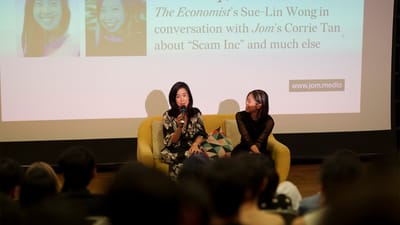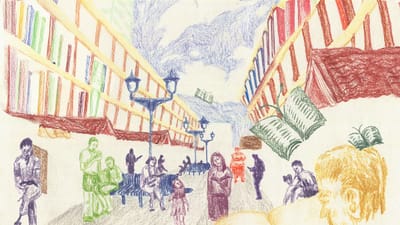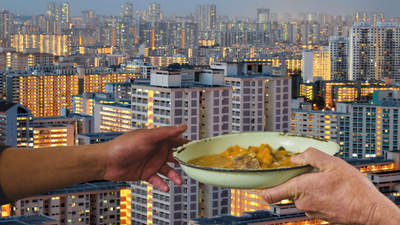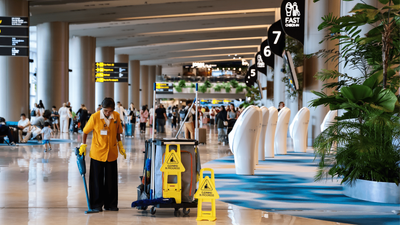May 30th 1993 was like any other regular gay night at the Rascals nightclub at the Pan Pacific Hotel in Marina Bay. The booze flowed freely, and the dance floor was lively.
Suddenly, the music was turned off and the lights were turned on. “Shut up! Police raid,” shouted a plainclothes policeman. Another climbed on the podium with a megaphone and started barking orders. One was wearing a fishnet t-shirt as he rounded up patrons. (Sting operations were common then.) The police divided the patrons into those with national identity cards (or other documents) and those without—and herded the latter group off to the Beach Road Police Station, where some spent the night in lock up.
Police raids on gay nightclubs at the time, the height of the HIV/AIDS moral panic, weren’t uncommon. But the reactions of patrons that night were. Wilfred Ong, a lawyer who was there, later looked into Singapore’s legislation and found that the police had no authority to detain people who didn’t have their identification documents, unless there was reason to believe they had committed a crime. He wrote a letter of complaint to the police, along with 21 co-signatories.
A month later, Ong received a call from the assistant superintendent of the Beach Road Police Station, reassuring him that there would be “no more future occurrences.” A few days later, he received a letter from the acting commander of the Central Police Division Headquarters, who explained that the police had received complaints of overcrowding at Rascals and had suspected patrons of providing false identification. More significantly, however, he apologised for the police officers’ behaviour.
The citizens’ complaint, in other words, had prompted authorities to acknowledge that the police had gone too far, a rare admission in Singapore. Some gay activists refer to Rascals as “Singapore’s Stonewall”, in reference to the Stonewall riots of 1969 in New York City, seen as a key catalyst of the gay rights movement in the US. (For beer cans, bricks and bloodied eyes in 1960s’ New York City, polite letters in 1990s’ Singapore.)
The Rascals incident is recounted in detail in Mobilizing Gay Singapore: Rights and Resistance in an Authoritarian State by Lynette J Chua, a professor of law at the National University of Singapore. Chua found that gay activists strategically adapted their tactics according to socio-political conditions, and made use of the very laws constraining them to resist them.
She defined this as “pragmatic resistance”, a “collectively sustained strategy” carried out by gay activists in Singapore, who “adjust their tactics according to changes in formal law and cultural norms, and push the limits of those norms while simultaneously adhering to them.”
Examples of such norms include non-confrontation, the maintenance of social stability to ensure economic growth, preservation of the ruling People’s Action Party’s (PAP) political power, and a desire for legal legitimacy. Chua wrote: “Although they aspire toward legal reform, they refrain from tactics that directly confront the state, such as street protests, and avoid being seen as a threat to existing formal arrangements of power.” By circumventing or mitigating formal restrictions such as laws banning public assemblies, they maintain “cultural legitimacy” and “challenge and reshape the meanings of political norms.”
Thirty years after Rascals, it might appear on the surface that most, if not all, civil society organisations in Singapore continue to abide by these non-confrontational methods, ones guided in some way by the notion of pragmatism.
After attending the 2022 United Nations Climate Change Conference (COP27) in Egypt, Kate Yeo, a climate activist who started BYO Bottle SG in 2018 and is part of Singapore Youth for Climate Action (SYCA), wrote in a post-conference reflection that “having grown up in Singapore I’ve long been conditioned to favour pragmatism”, but frustrated at the slow progress of climate talks, conceded that her “pragmatism has its limits too”.
Yeo and other young activists may be engaged in their own form of pragmatic resistance—but it’s one that they are actively reimagining for contemporary societal norms.
“We are pragmatists...Does it work? Let’s try it and if it does work, fine, let’s continue it. If it doesn’t work, toss it out, try another one. We are not enamoured with any ideology,” Lee Kuan Yew, Singapore’s first prime minister, told The New York Times, when asked whether Singapore could survive indefinitely with its current system of government. The refrain that Singapore practises pragmatism in governance (Lee said it three more times in that interview) is one familiar to all Singaporeans.





